What vitamins are in persimmons, what are the benefits and harms of the product, how to eat persimmons correctly
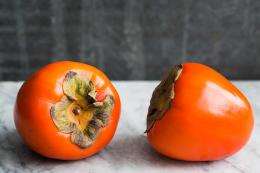
Persimmon is a shrub or tree that grows in subtropical and tropical climates and can be deciduous or evergreen.
The fruit is an edible, fleshy orange berry with one or more seeds. The Greek name "Diospyros" means "divine fire" or "food of the gods".
Let's figure out what vitamins are in persimmons, what else this southern fruit is rich in, how much of it you can eat and who should not eat it.
Content:
- Persimmon and its beneficial properties
- What vitamins are in persimmons?
- What vitamins in persimmons are good for pregnant women?
- Does persimmon contain iodine?
- Calorie content of persimmon, how to use it in a diet
- What is the harm of the product?
Persimmon and its beneficial properties
The fruit has a dense orange skin, its flesh is light or transparent. When unripe, the taste is astringent and disappears when the fruits are fully ripe.
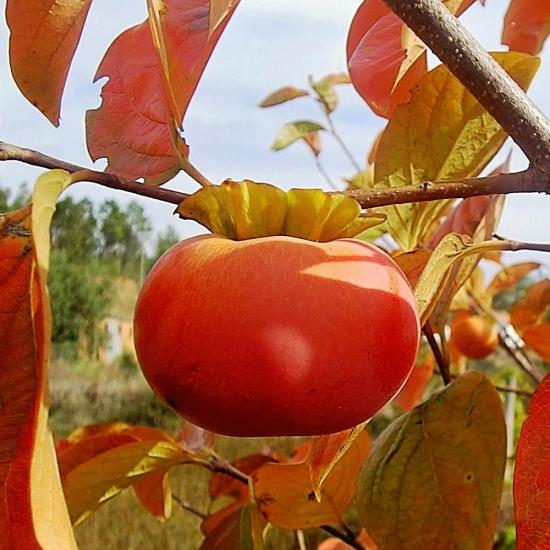
On sale you can find a variety - kinglet with dark sweet flesh without an astringent taste.
In addition, it contains the following biologically active substances and elements:
- mono-, di- and polysaccharides (25% of the daily carbohydrate intake);
- protein (1.5% DV);
- fats (0.85% DV);
- tannin and tannins;
- potassium, magnesium, iron, iodine;
- fiber.
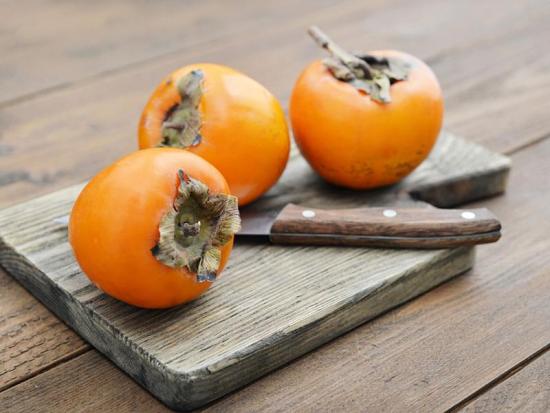
When eating fruit, the following effects on the human body are manifested:
- Diuretic;
- Intestinal motility is normalized and inflammation is relieved;
- Lipid metabolism is activated;
- The functioning of the liver and gall bladder is regulated;
- The pulp of the fruit can kill bacteria in the mouth and on the surface of the skin.
Due to its rich composition and high biological activity in the body, persimmon is recommended for therapeutic nutrition for:
- diseases of the heart and blood vessels;
- high blood pressure;
- diseases of the liver and biliary tract;
- anemia, scurvy;
- dysentery;
- stress and depression;
- externally - for burns and wounds.
Learn more about the benefits of the fruit by watching this interesting video:
What vitamins are contained in the fruit?
Most of all a southern belle contains vitamin C (55% of the daily value), other vitamins are presented in smaller quantities.
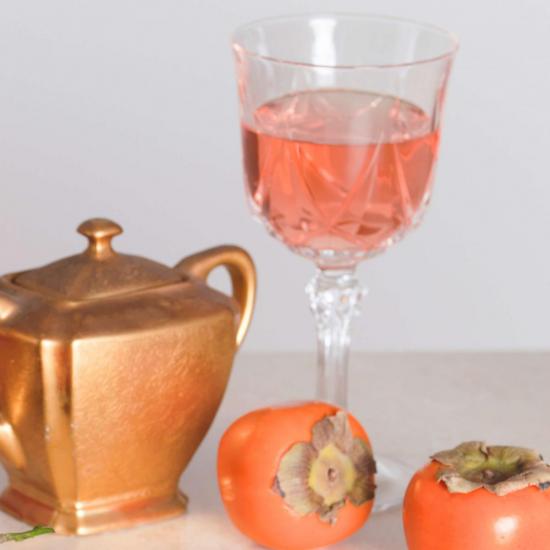
Vitamin composition of persimmon, mg/100 g of product:
- C – 66-90
- B1 – 0.02
- B2 – 0.03
- RR – 0.2
A wider vitamin composition is presented in Chinese and Japanese; it has dark orange-red large fruits compared to ordinary persimmon.
What vitamins are good for pregnant women?
The vitamin and mineral complex contained in the fruit is balanced and recommended for consumption during pregnancy. Vitamin C helps improve immunity, PP helps cope with mood swings, depression and stress that are possible in this condition.
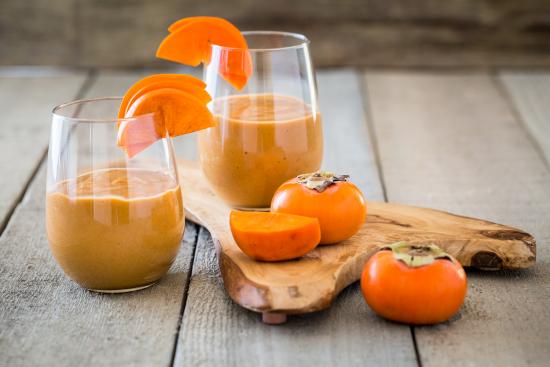
The content of iron and iodine in the product is especially important, since during pregnancy a decrease in total blood hemoglobin is possible. Iodine is necessary for normal fetal development. Fiber contributes to normal intestinal function.
Potassium and magnesium are necessary for normal heart function and hematopoiesis.
Nutritionists warn: during pregnancy you should not eat more than 1-2 persimmons per day. Too much fiber causes digestion difficulties, flatulence, or may lead to intestinal obstruction.
Does it contain iodine?
Persimmon is the champion among plant products in terms of iodine content. 100 g of fruit contains up to 20 mcg of this microelement.
Compared to spinach, beets, and parsley, persimmons outperform these products.
However, it is inferior to kelp (500 mcg/100 g), sea fish and seafood.
Calorie content as consumed during a diet
Despite the high carbohydrate content, the product is low-calorie: 100 g contains 62 kcal. The fruit does not cause a sharp increase in blood sugar, it has a low glycemic index, so the southern beauty is allowed to be consumed for diabetes.
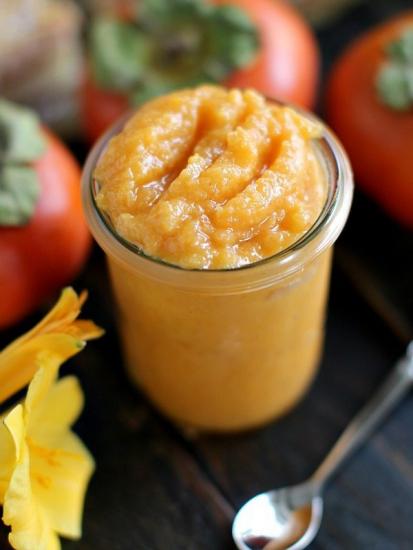
The consumption rate is calculated based on the current blood sugar level and does not exceed 1/2 -1 fetus.
In dietary nutrition, it is recommended to diversify fresh fruit and dishes that include persimmon.
For example:
- salad of tomatoes, feta cheese and persimmon;
- cottage cheese casserole stuffed with dried persimmons;
- orange beauty layer cakes;
- golden apple dried fruits as dessert.
Note! You cannot arrange fasting days only on persimmons. For weight loss, a light dinner of dishes with this fruit is recommended.
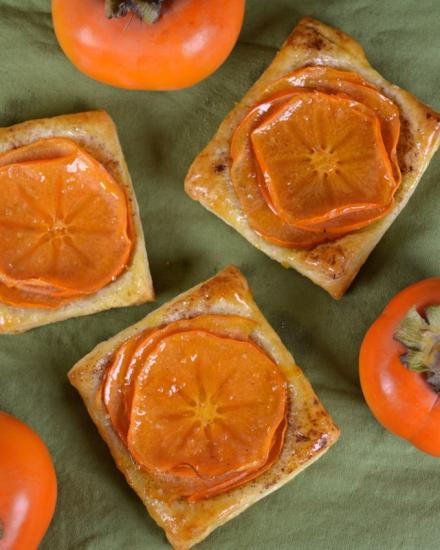
It is recommended to prepare:
- persimmon, whipped in a blender with bran (2-3 tablespoons and yogurt dressing);
- mashed with honey;
- soup with pumpkin and persimmon.
In the diet of healthy people, the number of ripe sweet southern fruits should not exceed 4 pieces.
What is the harm of the product?
Unripe, highly astringent fruits should not be consumed if you have diseases of the gastrointestinal tract. The tannin they contain irritates the walls of the stomach. Hard skin, when digested, can adversely affect the functioning of the liver, pancreas and gall bladder.
Even in healthy people, when consuming large quantities of fruits, they stop being digested in the stomach and cause obstruction in the digestive tract. In especially severe cases, it is necessary to resort to surgical treatment.
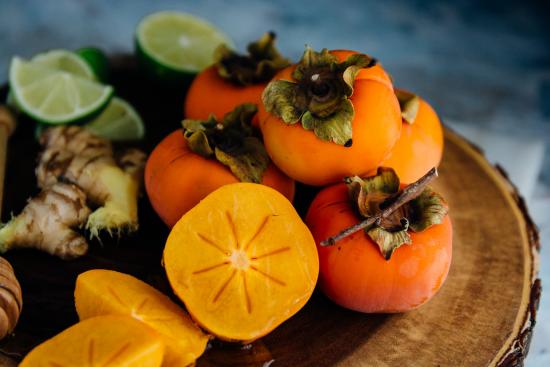
In this regard, orange apple should not be consumed on an empty stomach and washed down with cold water.
Golden fruit should not be given to children under 3 years of age due to imperfect functioning of the gastrointestinal tract. At the age of 3 to 7 years - no more than 2 fruits per day.
About the benefits and harms of persimmons - in the video:
So, during the ripening season of the “food of the gods”, be sure to eat persimmons! This is a valuable food product, rich in fiber, physiologically active substances, vitamins and minerals. It will help you stay healthy, cheerful and cheerful.

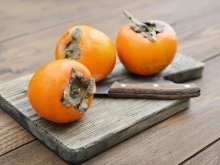
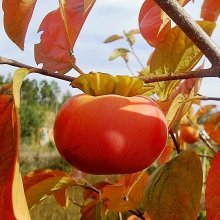
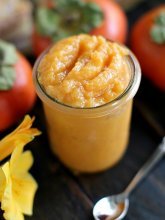
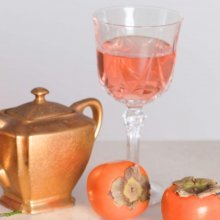
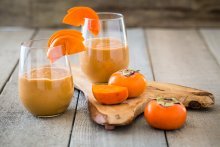
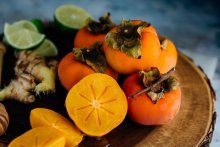
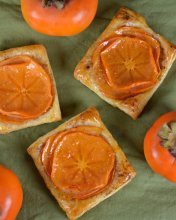
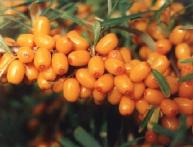
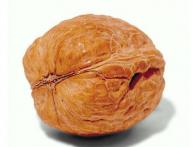
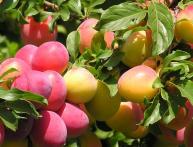


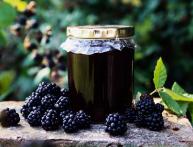
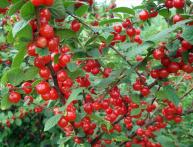
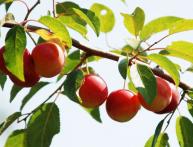
Comments
A very tasty seasonal fruit that pleasantly diversifies dessert during the cold season. But I’m not sure that I can eat it in quantities that would be dangerous for my digestion.
It is too expensive and then before using it you have to freeze it in the refrigerator for a long time and then defrost it, this is too long a process that makes me nervous when I buy this product.
But I could not fall in love with this fruit, it is tasteless to me, and the skin is hard and knits. Interesting recipes in combination with other products, it never occurred to me that it could be mixed with anything.
We love this fruit very much and always buy it in the fall, but the tuyere knits in our mouth, so we always take only the Korolek variety. It is very tasty and juicy, and practically does not stick in the mouth.